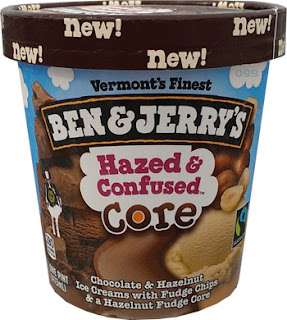I'm all about capitalism. It's got its problems but has proven itself to be the best system at providing the goods and services we need to maintain the best quality of life possible. One of the problems (and the inspiration for this post) is revealed in a recent experience. I have an embarrassing condition (apparently not too embarrassing since I announced it in the title of this post). So here's the story:
Toenail fungus makes your toenails thick, powdery white and sometimes brittle. So I went to the doctor (who turned out to be a PA, NOT an MD) and he said he could give me a pill that I have to take for a year and that will damage my liver. Oh, and it only has about a 50/50 chance of working. Or, he found the most effective thing is to rip the toenails off. He didn't actually say "rip". Instead he made it sound like it was simple enough that I could play soccer the next day. So I said "rip them all off". He wisely had me do only one foot. If I were a woman and had given birth, I could compare the pain to having a baby. Since I'm not a woman, I guess for now on I'll just have to say "it hurts as bad as having your toenails ripped off".
While I was limping around work in recovery, someone asked what happened. After my reply, they asked why I didn't get laser treatment. Apparently it takes 5 minutes and is painless. I really don't know how to explain my emotional reaction to this news. After about 6 months of waiting for my toenails to grow back, only my pinky toe was better. The others seemed worse than before.
Time to try the laser treatment. I found a Groupon deal for $360. They did two treatments. In this treatment, the doctor shines a laser on the toenail till it heats up, then moves it over a tiny amount and repeats until he's done the entire toenail. I learned after the first spot that you have to tell the doctor when its hot enough. He told me this after I yelled "Ow!". Two treatments, I waited 6 months. NO BENEFIT.
Then I spent about $20 in over-the-counter treatments. An oil you brush onto the nail. I was diligent doing it every morning and night for 6 months. The nails looked good, but were not 100%. So I quit. And they started looking bad again.
At this point (if you made it this far), you're probably asking "What does this have to do with the Free Market?" (Be patient and thanks for hanging in there)
This is the point that I decided to cast my search far and wide. The consensus was that there is no cure yet I found a website that compared several products. The top product claimed a 94% success rate. On Amazon.com, it had a high user rating. I always read the 1-star ratings when reviewing products. They confirmed my suspicion. The product was a scam with a bunch of fake user ratings and fake websites reviewing the product.
Instead, I decided to try and discover my own treatment. We have a bottle of Castor Oil that we purchased for $2 It's about 5 times the size of the $20 bottle of special toenail fungus treating oil. I drenched my toes in Castor Oil and put plastic bags over my feet (for about an hour). I also do the daily application. After about a week, my toes look better than they have with any of the other treatments. They aren't cured yet, but this is where I make my point about the Free Market.
Getting information to the public is expensive. Google and Facebook are mega billion dollar companies because of all the money other companies spend trying to connect to the public. No one is going to get rich selling $2 bottles of Castor Oil to treat toenail fungus. I'm sure there are many other cheap alternatives to our everyday needs, but companies aren't interested in providing cheap alternatives unless they can make good money. Selling expensive lasers to podiatrists and selling tiny bottles for $20-$30 at Target or online is what makes money.
Years ago I bought a set of silicon rubber windshield wiper blades. Best windshield wiper blades I ever owned. They worked great for years. The only reason I no longer have them is that I sold the car they were on. The company that sold them is out of business. You don't stay in business by selling something that lasts forever. You stay in business by selling lousy windshield wiper blades that last for a year or two and then need to be replaced.
Conclusion
Skip the cures with the painful side effects, sexy technology, scamming self-promoters. Just give me the simple pleasures. I wish our Free Market system had a way to promote the truly economical solutions to life's needs, but instead I'm worried that these ideas are the endangered species in our competitive society.




